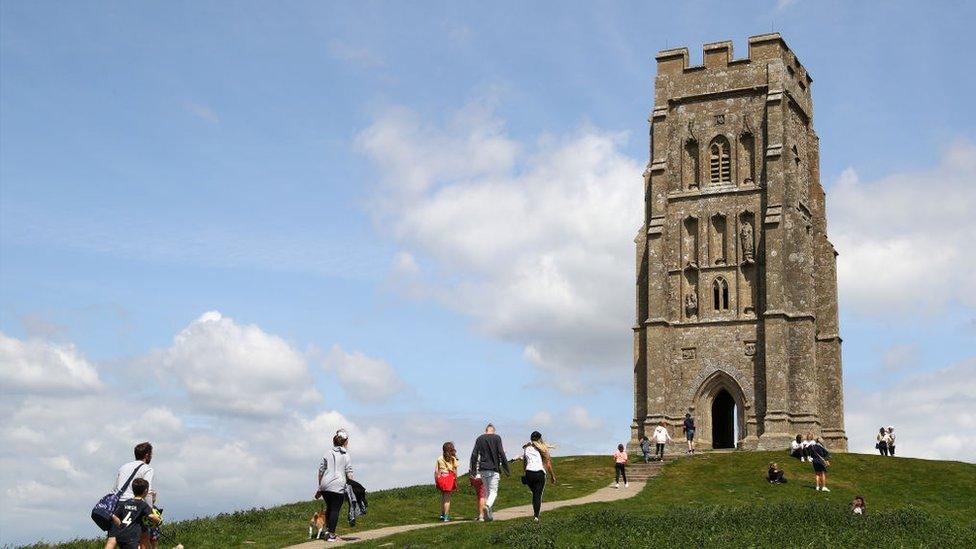Sarah Forbes Bonetta: Portrait of Queen Victoria's goddaughter on show
- Published
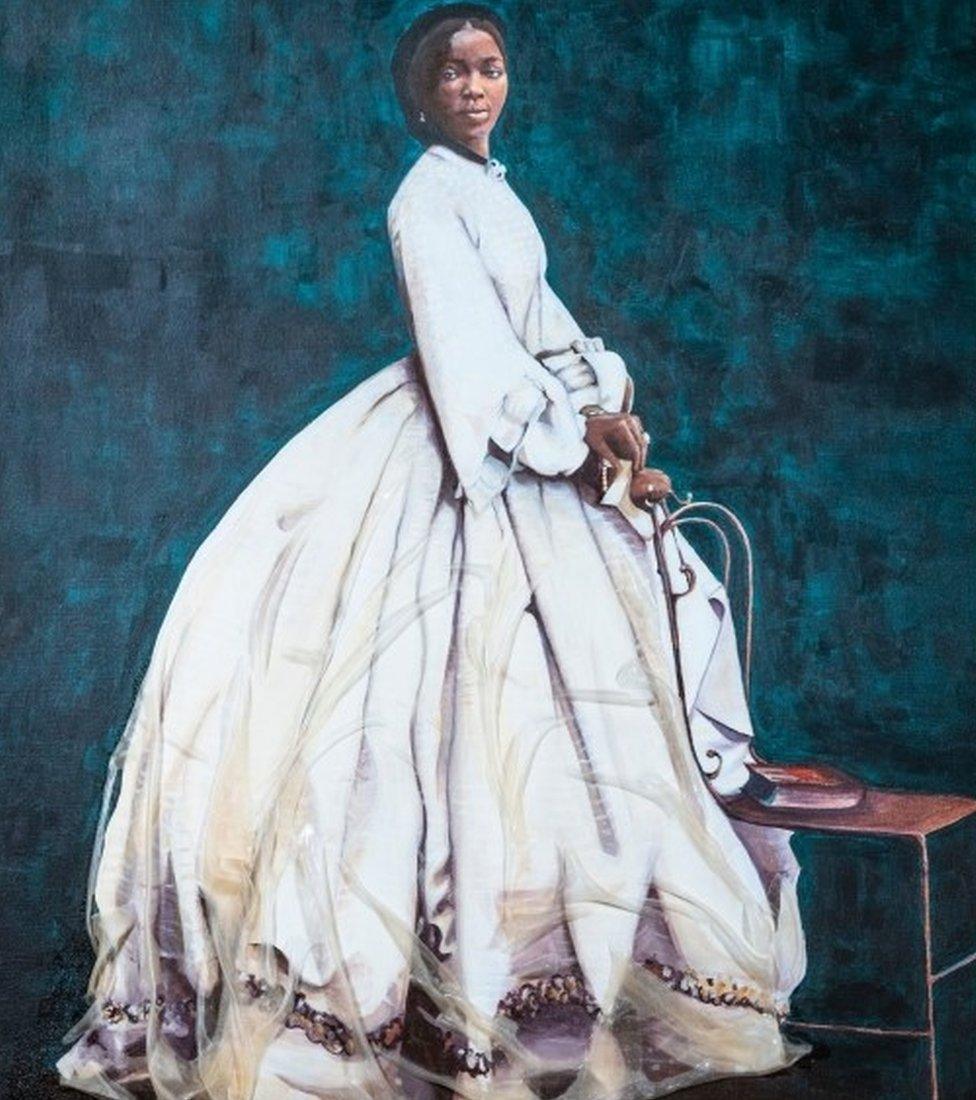
Sarah Forbes Bonetta, Queen Victoria's African goddaughter by artist Hannah Uzor, is on display at Osborne House
A new painting of Queen Victoria's African goddaughter has gone on display as English Heritage said it would feature portraits of "overlooked" black figures connected with its sites.
Sarah Forbes Bonetta was sold into slavery aged five and presented as a "diplomatic gift" to Captain Frederick Forbes in 1850 and brought to England.
She then met Queen Victoria through the captain, who paid for her education.
The painting is on show at the Isle of Wight's Osborne House.
The picture is on display at the royal seaside palace, where the Queen once lived with Prince Albert and their nine children, to coincide with Black History Month.
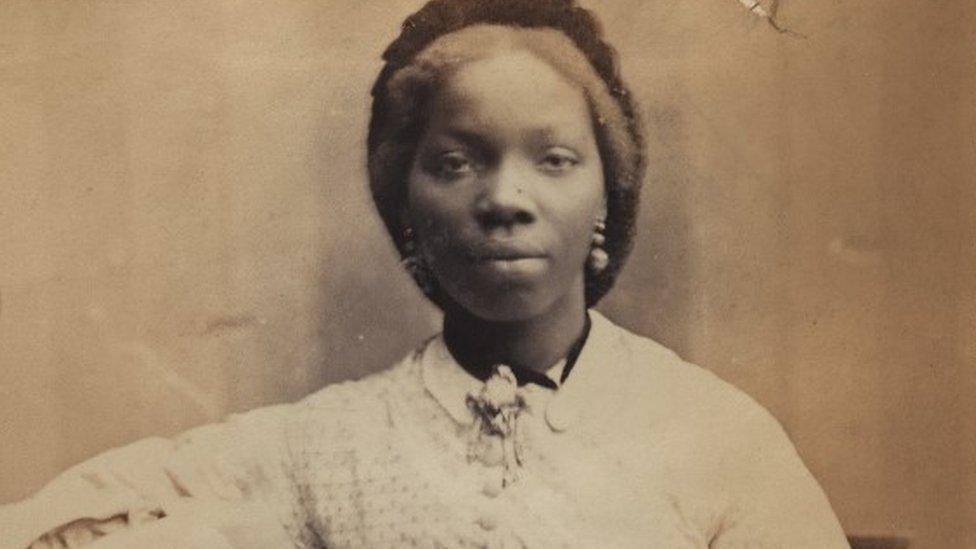
English Heritage is displaying a portrait of Bonetta as part of a plan to feature works of "overlooked" black figures connected with its sites
The portrait, by artist Hannah Uzor, is based on a photograph and shows Ms Bonetta wearing her wedding dress.
Ms Uzor said: "To see Sarah return to Osborne - her godmother's home - is very satisfying and I hope my portrait will mean more people discover her story."
Breathing life into black British history
Ms Bonetta named her first daughter after the Queen, who also became the child's godmother.
Captain Forbes named her Sarah Forbes Bonetta, partly after his ship, the HMS Bonetta.
He had visited the King of Dahomey - in what is now Benin - as a representative of Queen Victoria, on a mission to negotiate the suppression of slavery.
'Took her under her wing'
Curatorial director of English Heritage Anna Eavis said: "It's an extraordinary story.
"Britain had abolished the slave trade and was now on a mission to make sure the slave trade was abolished throughout the world. Captain Frederick Forbes, a naval captain, arrived at Dahomey to try and talk the King of Dahomey out of continuing with this trade.
"He wasn't successful but the king presented him with this little girl who was seven years old and an orphan. Forbes took her back and presented her to Queen Victoria at Windsor Castle.
"Victoria was so affected by this little girl arriving she wrote about it in her diary and took her under her wing, paid for her education and took an interest in her and her daughter for the rest of their lives."
Ms Bonetta died in Madeira, aged 37, after becoming sick with tuberculosis. Her daughter Victoria received the news while visiting the Queen at Osborne.
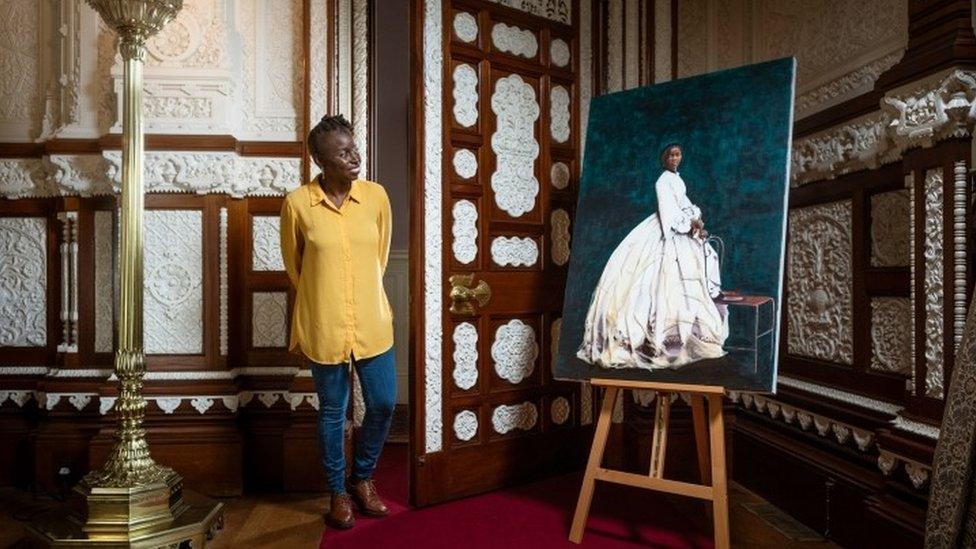
Artist Hannah Uzor with her painting of Sarah Forbes Bonetta
English Heritage said from spring 2021 further portraits of black figures associated with its sites, whose stories like Ms Bonetta's which had been "previously overlooked", will go on display.
The charity said: "Black history is part of English history and, while we know we have more to do, English Heritage is committed to telling the story of England in full."
Ms Eavis added: "There are a number of black figures from the past who have played significant roles at some of the historic sites in our care but their stories are not very well known.
"Starting with Sarah, our portraits project is one way we're bringing these stories to life and sharing them with our visitors."
Ms Bonetta's story was the subject of a play released at the start of the year called The Gift.
Other portraits set to go on display include Rome's African-born emperor Septimius Severus, who strengthened Hadrian's Wall, and James Chappell, a 17th Century servant at Kirby Hall in Northamptonshire, who saved the life of the country house's owner.
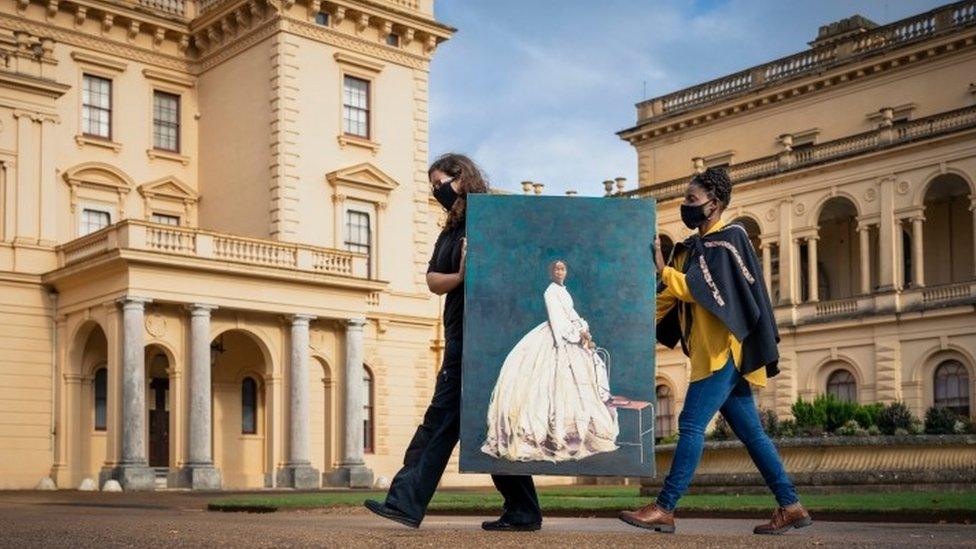
The portrait being carried through the grounds of Osborne House
Properties where visitors will find new information about connections to the slave trade will include Brodsworth Hall in South Yorkshire.
Its former owner, Peter Thellusson, was not a slave trader himself but invested in slavery-related commodities and land.
At Kenwood House, in London, visitors will learn about how rulings by former owner Lord Mansfield, as Lord Chief Justice, made a significant contribution along the road to abolition.
Related topics
- Published22 January 2020
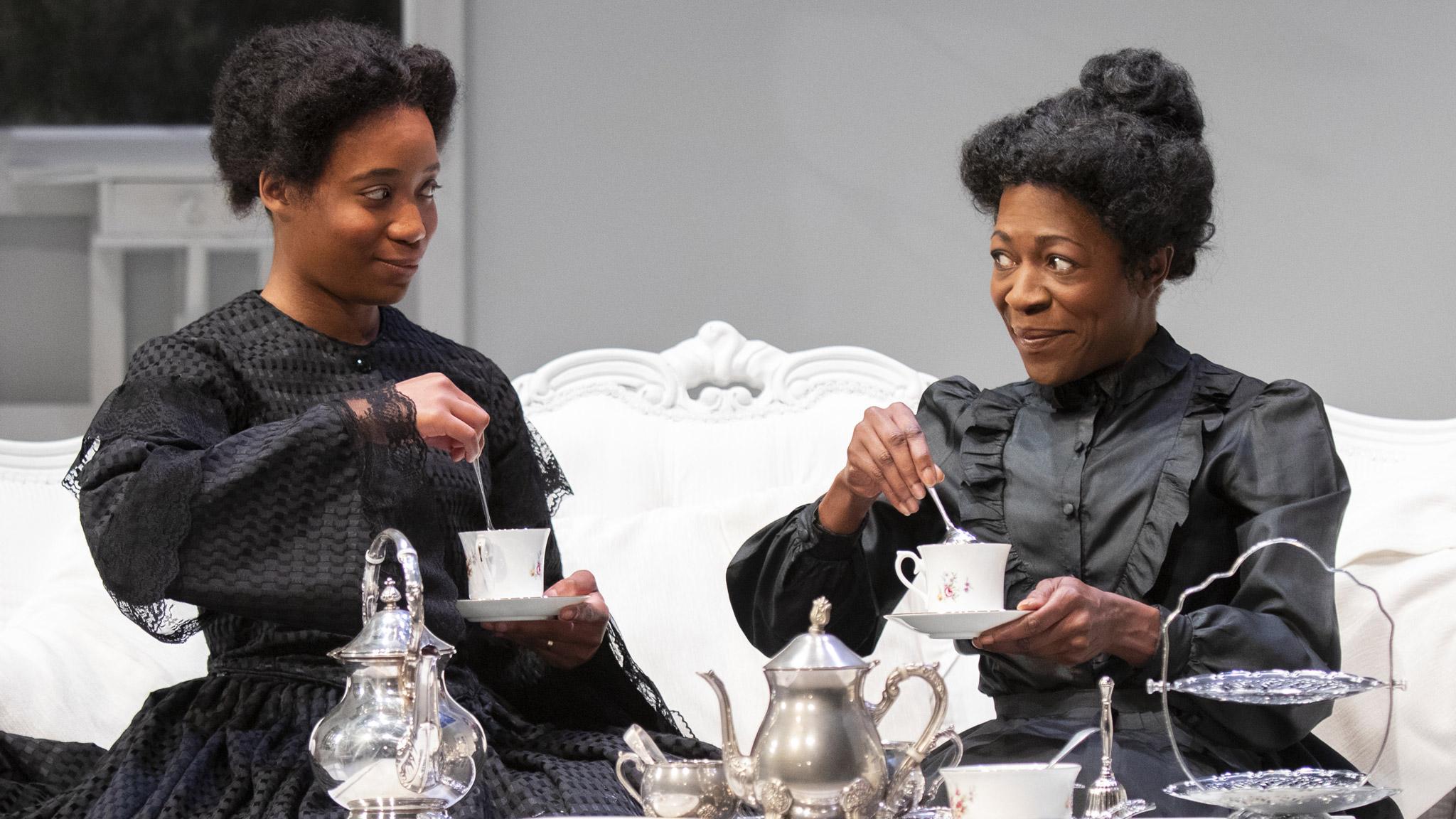
- Published7 October 2020
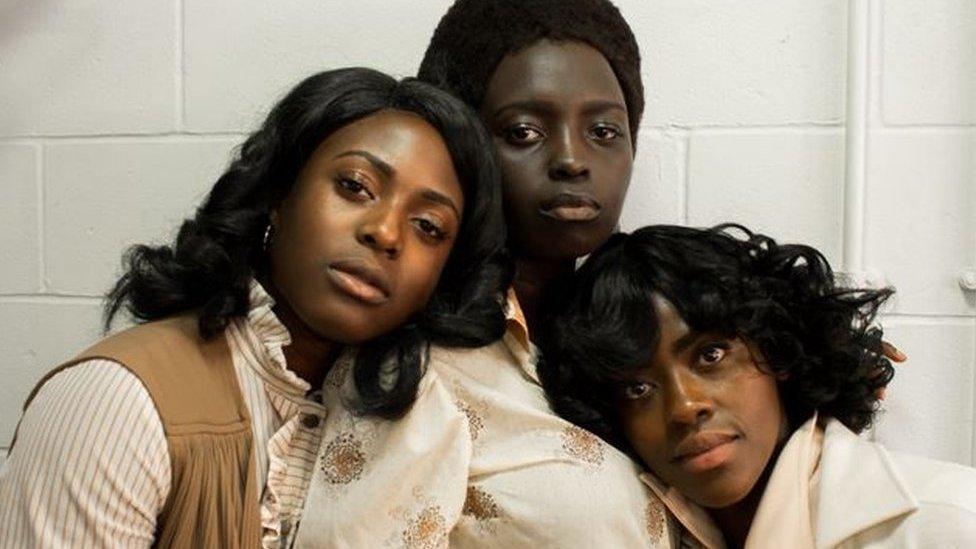
- Published22 September 2020
